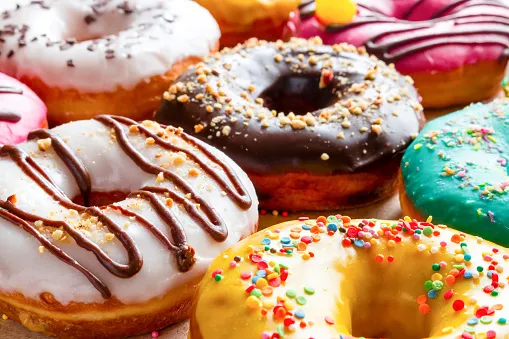
Many people are confused when they receive different results for their fasting blood sugar levels and HbA1c levels. It’s important to understand why these two measurements can vary and what each one represents in terms of your overall health.
Food with low calories (also called a fad diet), a low-fat diet like the keto meal plan, or paleo diet can help you lose weight. However, there’s little research about their benefits in preventing diabetes in the long term. Your dietary strategy should help you lose weight and encourage a healthy weight. A strategy with healthy dietary choices should enable you to nurture it into a habit or lifestyle.
What is fasting blood sugar?
Fasting blood sugar, also known as fasting glucose, is a measurement of the amount of glucose in your blood after you have not eaten for at least 8 hours. This test gives a snapshot of your blood sugar levels at a specific point in time and is typically used to diagnose diabetes or monitor how well diabetes is being managed.
What is HbA1c?
Glucose in your blood sticks to hemoglobin, a protein in your red blood cells. As your blood glucose levels increase, more of your hemoglobin will be coated with glucose. An A1C test measures the percentage of your red blood cells that have glucose-coated hemoglobin. If you have diabetes, your HbA1c level may be done every 2-6 months by your doctor or nurse. This test measures your recent average blood sugar (glucose) level.
HbA1c, or glycated hemoglobin, is a measure of your average blood sugar levels over the past two to three months. This test provides a more comprehensive view of how well your blood sugar has been controlled over time, rather than just at one moment.
Why do fasting blood sugar and HbA1c levels differ?
There are several reasons why fasting blood sugar and HbA1c levels may differ:
The hemoglobin cells live for about three months, so the percentage of this protein attached to glucose within this period reflects in the test result. Sadly, most diabetics go through their prediabetes stage undiagnosed, only taking the needed tests when they slip into diabetes and start experiencing certain complications. Some may even end up not getting any diagnosis until certain complications have begun to metamorphose. Prediabetes isn’t considered diabetes because the blood sugar range isn’t high enough to meet diabetes requirements despite being higher than normal. However, it’s only a matter of time before people with the condition slip into full-blown diabetes.
- Timing: Fasting blood sugar measures your blood sugar levels at one specific point in time, while HbA1c provides an average over a longer period.
- Different factors affecting blood sugar: Fasting blood sugar can be influenced by recent food intake, stress, illness, or medication, whereas HbA1c reflects overall blood sugar control.
- Individual variation: Some individuals may have higher fasting blood sugar levels due to factors like the dawn phenomenon, where hormones released in the early morning cause blood sugar to rise.
Patients can get different types of tests; the two most popular and often recommended tests are A1C and fasting glucose tests. While other blood sugar tests tell whether a person has diabetes or not, these two stand out and are often compared. The American Diabetes Association has suggested that glycated hemoglobin (HbA1c) be used instead of fasting blood glucose for diabetes diagnosis. HbA1c is an essential predictor of long-term glycemic management since it might represent the previous two to three months’ cumulative glycemic history.
If you have received a diabetes diagnosis it should be taken more often, perhaps once every three months. Our data indicate that AGR values are higher in black versus white individuals and in old versus younger individuals. To visualize this, we generated a scatter plot of HbA1c versus FPG for black females older than 50 years of age and white males less than 21 years of age (figure 3).
FAQs
Can fasting blood sugar and HbA1c give conflicting information about my diabetes management?
While fasting blood sugar and HbA1c can provide different perspectives on your blood sugar control, both tests are valuable tools for managing diabetes. It’s important to discuss any discrepancies with your healthcare provider to ensure you are getting a complete picture of your health.
How often should I get my fasting blood sugar and HbA1c levels checked?
It is recommended that individuals with diabetes or at risk for diabetes have their fasting blood sugar and HbA1c levels checked regularly as part of their diabetes management plan. Your healthcare provider can advise on the frequency of testing based on your individual needs.




